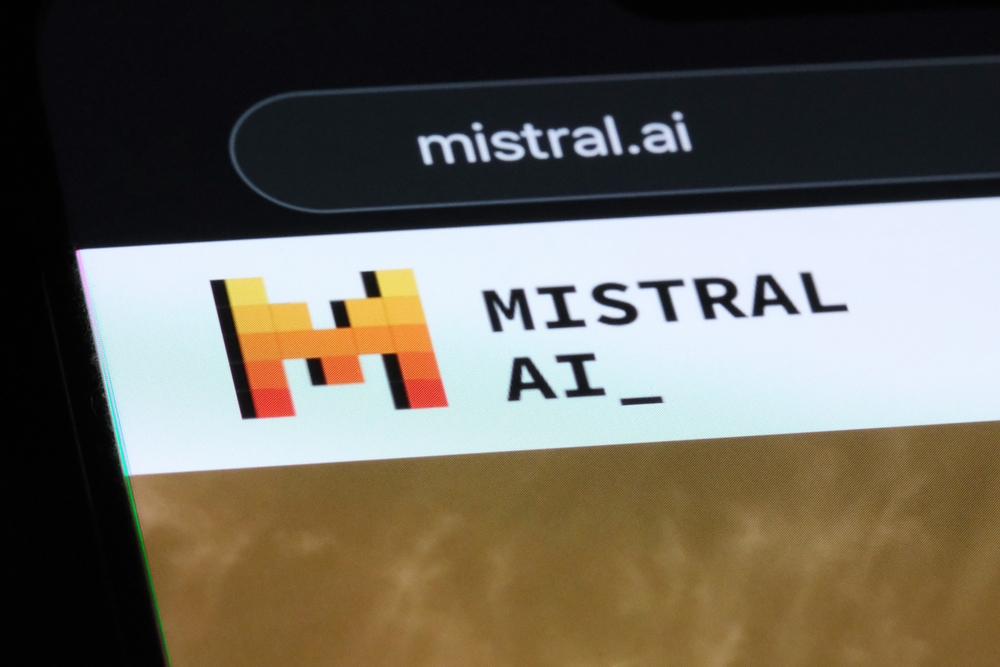French AI startup Mistral AI underscored its reputation of delivering high-performing open-source models by unveiling a proprietary large language model (LLM) that joins the top benchmark.
The Paris-headquartered firm joined the big leagues by unveiling the Mistral Large to rival the top-tier LLMs. The launch coincided with the release of the Le Chat beta version for the consumer-facing chatbot in what appears to rival the market leader OpenAI’s ChatGPT.
Mistral AI Unveils Mistral Large Fitted with Supreme Reasoning
The official announcement by the French startup conveyed via its website on Monday, February 26, profiled the Mistral Large as the flagship model with top-tier reasoning capacities.
The Mistral Large realizes the strong results against the commonly deployed benchmarks to make it the second-ranked generally available via API behind OpenAI’s GPT-4.
Mistral’s Large capacity is evident in supporting 32,000 tokens for the context window. In particular, it supports over 20,000 words in multiple languages, including German, Italian, Spanish, French, and English, with keen detail on grammar and cultural context.
The tech startup considers its flagship model favors execution of complex tasks that necessitate extensive reasoning capabilities and are highly specialized. Such is possible given its delivery for concise and evidence-backed output checked under modular moderation control.
Mistral AI Makes Case for High Performance Models
Mistral AI has, since its emergence, become a preferred choice within the open-source AI community owing to its high-performance models, such as Mistral 7B. Its supreme product is the Mixtral 8x7B, which deploys a mixture-of-experts approach to bolster overall quality.
The Mistral Large, however, is a proprietary model, suggesting that limited technical details exist to support the autonomous comparison of the model against the rivals. The tech firm has yet to disclose the technical papers and details regarding the training parameters, training approaches, and data corpus leveraged in building the model.
Mistral Large Comparison Relative to Creator’s Tests
Mistral AI ranks Mistral Large second from the GPT-4 created by the Sam Altman-led firm on several benchmarks. The capability may vary relative to the real-life usage of the model, considering that its assessment in third-party rankings such as Chatbot Arena is nonexistent.
Mistral AI alleges that the Mistral Large would easily outperform Mistral Medium, which ranked higher than OpenAI’s GPT-3.5. Also, the latter outperformed Claude1 and Claude2 from Anthropic AI relative to the blind comparisons in outputs derived from similar prompts.
Mistral Large is accessible via the paid API and offers a cheaper alternative to OpenAI. Mistral Large is priced at $8 per million token input and $24 per million output tokens to match Claude, while GPT-4 attracts $10 and $30, respectively.
Le Chat, unveiled alongside Mistral Large, is the firm’s chat assistant, available for free in its beta version. Users can consider Mistral Small and Mistral Large or use the prototype model identified as Mistral Next, which is uniquely designed to offer brief and concise output.
The French company hinted at unveiling the paid version of the Le Chat targeting enterprise clients. Notably, the model will feature central billing and the capacity to define moderation mechanisms.
A rare test for the generation capabilities, as reported by Decrypt, illustrates that the Le Chat is censored yet competent enough. The Tuesday publication by Decrypt indicated that Le Chat is immune to excessive hallucination.
The Tuesday publication profiled Le Chat as delivering a progressive yet respectful tone while guaranteeing easy-to-understand output for the long context prompts. Nonetheless, Decrypt faulted the chatbot for lacking multimodal capability and inability to access real-time information using web searches.
Reflection on the Mistral AI Journey
Mistral AI is a tech startup founded by a former employee at Meta and Google’s DeepMind to quickly assert itself in the competitive AI sector. Several months after its establishment in May last year, the startup attracted huge capital, including a $415 million round led by Andreessen Horowitz (a16z).
The company has ditched the open-source ethos to embrace the business model deployed by the Microsoft-backed OpenAI. The firm is offering the Mistral Large as a paid API.
Mistral AI’s rise to prominence is noticeable following its partnership with Microsoft. The alliance seeks to extend Mistral AI’s presence by availing the models to Azure customers. The move will broaden the startup’s distribution channels, increasing its capacity to bolster the technology.
Mistral AI chief executive Arthur Mensch hailed the partnership with Microsoft, considering Azure’s reputation for delivering superior AI infrastructure.
The partnership with Microsoft replays the latter’s critical role within the AI space. Microsoft is among the leading shareholders in OpenAI, besides the partnership running with Meta to offer infrastructure critical to developing Llama.
Editorial credit: Robert Way / Shutterstock.com
